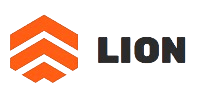介紹
海洋推進系統代表了鋁製青銅組件的最關鍵應用之一,尤其是在移動系統中。該綜合指南重點介紹了在海洋軸承應用中最大化鋁製青銅組件的使用壽命的方法和策略。
組件概述
海洋射擊中的關鍵鋁製青銅組件
壽命延長策略
1。設計優化
軸承設計參數
| 範圍 | 標準範圍 | 優化範圍 | 生活影響 |
|---|---|---|---|
| L/D比 | 2-3 | 2.5-3.5 | +20-30% |
| 表面飾面(RA) | 0.8-1.6μm | 0.4-0.8mm | +15-25% |
| 清除比 | 0.001-0.002 | 0.0015-0.0025 | +10-20% |
| 邊緣配置文件 | 標準 | 最佳化 | +15-25% |
材料選擇標準
| 應用 | 推薦等級 | 主要特性 | 設計生活 |
|---|---|---|---|
| 重負 | C95800 | 高強度 | 15 - 20年 |
| 中等職責 | C95500 | 平衡的特性 | 12 - 15年 |
| 輕便責任 | C95400 | 成本效益 | 10 - 12年 |
2。潤滑管理
潤滑系統
| 系統類型 | 應用 | 好處 | 保養間隔 |
|---|---|---|---|
| 油浴 | 重負 | 出色的冷卻 | 3-6個月 |
| 潤滑脂 | 中等職責 | 簡單設計 | 1-3個月 |
| 水潤滑 | 環境的 | 清潔操作 | 連續的 |
潤滑劑規格
| 範圍 | 要求 | 監視方法 | 檢查頻率 |
|---|---|---|---|
| 粘度 | 40-100 CST | 粘度計 | 每月 |
| 水含量 | <0.1% | 卡爾·菲舍爾(Karl Fischer) | 季刊 |
| 粒子數 | ISO 4406 | 粒子計數器 | 每月 |
| pH值 | 7.0-8.5 | pH計 | 每週 |
3。維護程序
檢查時間表
| 零件 | 檢查類型 | 頻率 | 關鍵測量 |
|---|---|---|---|
| 軸承 | 視覺的 | 每月 | 佩戴圖案 |
| 襯墊 | 超音波 | 季刊 | 壁厚 |
| 密封 | 身體的 | 每月 | 嘴唇條件 |
| 結盟 | 雷射 | 半年度 | 軸位置 |
穿監視
| 範圍 | 方法 | 限制 | 需要採取的行動 |
|---|---|---|---|
| 清除 | 錯誤量規 | +0.1毫米 | 密切監視 |
| 磨損率 | 千分尺 | 0.1mm/年 | 計劃更換 |
| 表面粗糙度 | 輪廓儀 | RA>1.6μm | 表面飾面 |
| 橢圓度 | 撥號量表 | > 0.05mm | 重組 |
4。操作指南
操作參數
| 範圍 | 正常範圍 | 最大限制 | 警告信號 |
|---|---|---|---|
| 溫度 | 40-60°C | 80℃ | 快速增加 |
| 振動 | 2-4 mm/s | 7毫米/s | 突變 |
| 載入 | 70-80% | 100% | 持續的超負荷 |
| 速度 | 80-90% | 100% | RPM過多 |
啟動和關機程序
- 啟動序列
- 潤滑前:5-10分鐘
- 逐漸提高速度
- 溫度監測
- 振動檢查
- 關閉協議
- 逐漸降低速度
- 涼爽的時期
- 最終檢查
- 保護措施
5。環境保護
防腐
| 方法 | 應用 | 效力 | 維護 |
|---|---|---|---|
| 陰極保護 | 連續的 | 高的 | 6個月 |
| 保護塗料 | 外部的 | 中等的 | 年度的 |
| 抑製劑 | 內部的 | 高的 | 每月 |
| 環境控制 | 全面的 | 中等的 | 連續的 |
6。修理和翻新
維修技術
| 損壞類型 | 修復方法 | 成功率 | 服務壽命影響 |
|---|---|---|---|
| 表面磨損 | 金屬噴塗 | 85% | -10% |
| 破裂 | 焊接 | 75% | -15% |
| 得分 | 加工 | 90% | -5% |
| 形變 | 熱處理 | 80% | -10% |
壽命延長結果
案例研究
案例研究1:貨船
- 最初的生命:10年
- 延長壽命:15年
- 使用的方法:
- 增強的潤滑
- 定期監視
- 預防性維護
案例研究2:客船
- 最初的生命:12年
- 延長壽命:18年
- 使用的方法:
- 設計優化
- 高級材料
- 狀態監測
成本效益分析
投資與回報
| 戰略 | 實施成本 | 生命延長 | ROI |
|---|---|---|---|
| 基本維護 | 根據 | +20% | 150% |
| 增強的設計 | +30% | +40% | 200% |
| 高級材料 | +50% | +60% | 180% |
| 完整的系統 | +75% | +100% | 220% |
最佳實踐摘要
1。設計階段
- 適當的材料選擇
- 最佳清除
- 足夠的安全因素
- 環境考慮
2。安裝
- 精確的對齊
- 適當的安裝
- 品質管制
- 文檔
3。操作
- 定期監視
- 適當的潤滑
- 負載管理
- 溫度控制
4。維護
- 預定檢查
- 預防性行動
- 記錄保存
- 趨勢分析
未來的發展
新興技術
- 監視系統
- 實時磨損檢測
- 預測分析
- 物聯網集成
- 遠程監視
- 材料的發展
- 新的合金組成
- 表面處理
- 複合材料
- 智能材料
結論
延長海洋塑料系統中鋁製青銅組件的使用壽命需要:
- 全面的理解
- 系統的方法
- 定期維護
- 正確操作
- 連續監視
正確實施後,這些策略可以:
- 雙組分壽命
- 降低維護成本
- 提高可靠性
- 提高性能
- 最大化ROI
生命擴展方法的投資通常通過以下方式提供大量回報:
- 較低的替代成本
- 降低維護費用
- 提高可靠性
- 增強的系統性能
- 擴展服務間隔
